Movie Review – Hustler, The
Principal Cast : Paul Newman, Jackie Gleason, George C Scott, Piper Laurie, Myron McCormick, Murray Hamilton, Michael Constantine, Stefan Gierasch, Clifford Pellow, Jake LaMotta, Vincent Gardenia, Charles Dierkop, Carl York, Alexander Rose, Gordon B Clarke, Carolyn Coates.
Synopsis: A low-time pool hustler moves from town to town making a quick buck, searching to take on legendary pool player Minnesota Fats; he’s soundly beaten, but ends up finding a fellow lost soul to accompany him through his despair with drink and casual sex. Of course, the lure of pool and the desire to get rich quick drag him back into the seedy underworld of the American Pool Hall.
**********************
Makin’ pool look cool.
How hard is it going to be to enjoy this film? Paul Newman, check. Jackie Gleason, check. The stunning Piper Laurie romping in the sack with Newman, check. Seedy pool halls, check. Constant screen smoking, check. Constant drinking, check. It’s like the most sordid film ever made is given a free pass to be a genuine American classic, a story of winning and losing and winning again, told through the soft-focus lens of the bottom of a whiskey bottle. Filmed in black and white, with Oscar-winning cinematography from DOP Eugen Shufftan (Napoleon), The Hustler just looks amazing even now, even if it’s somewhat minimalist in nature thanks to the settings and the locales involved in the story. Primarily set in pool halls and an apartment, The Hustler is light in abundant locations but heavy in emotional content. And it’s terrific.
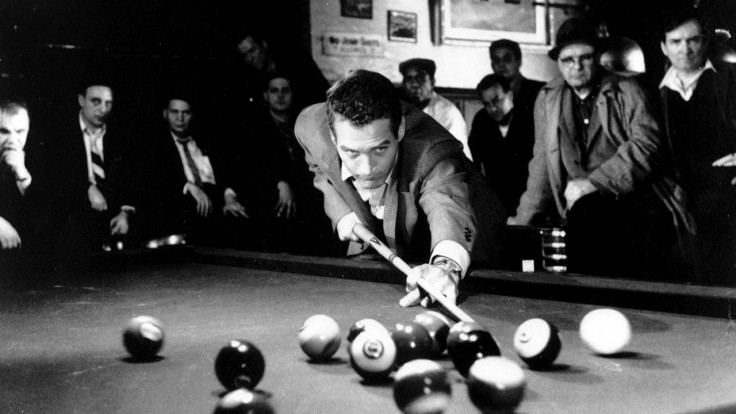
“Fast” Eddie Felson (Paul Newman), a small-time pool hustler, travels across America from California with his partner Charlie (Myron McCormick) to challenge legendary pool player Minnesota Fats (Jackie Gleason) to the ultimate game, as a test of his own ability. Legend has it that Fats has not lost a game in some 15 years, and while he puts up a good fight, Eddie eventually loses in a 25-hour battle, by which time he’s won – and then lost – nearly $20,000. Resolving not to return to the lure of the game, Eddie meets and hooks up with crippled alcoholic Sarah (Piper Laurie), with whom he has an affair at a nearby hotel. Charlie, seeking Eddie out, is sent packing after trying to get Eddie back into the hustle; he is then approached by professional gambler Bert (George C Scott) with an offer he can’t refuse – he travels to play another hustler in Kentucky to raise the stake needed to challenge Fats again. This puts to the test his new relationship with the gradually sobering Sarah, who senses the spiralling nature of Eddie’s addiction to pool, and wants him to break free.
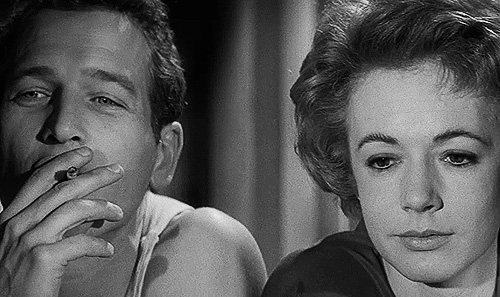
The Hustler is an interesting film for a number of reasons. The first is the story; the screenplay is based on Sidney Carrol’s 1959 novel of the same name, and derives a lot of it’s examination of human nature in the context of “winning” and “losing” – Bert, in describing Eddie as a “born loser”, not only pricks Eddie’s pride but manages to encapsulate Eddie’s self-destructive personality. This yin-and-yang mantra permeates the film, with both Eddie’s overblown ambition and ego falling flat in the face of defeat at the hands of Minnesota Fats, as well as Eddie’s up-and-down relationship with fellow “born loser” Sarah (although she’s never described as such in the film, it’s fairly obvious to the viewer); director Robert Rossen’s masterful handling of these elements through editing and camera angles is indeed powerful stuff. The second element that makes The Hustler interesting is it’s incredibly powerful sexualized content – Newman and Laurie, as Eddie and Sarah, sizzle the screen as lonely, discontented lovers; you just know they are doomed to fail, not because they aren’t attracted to each other, but because they have too many problems and baggage that can’t overcome their purely physical relationship. Their bedroom antics are not explicit (nothing more than hot kissing and the occasional glimpse of undergarments here folks), but Rossen’s camerawork in conveying the heat of their passion is sensational. They are two characters of tragic creation, destined to fail but expected to try; their final fate is indeed as tragic as their opening conversation would lead you towards.
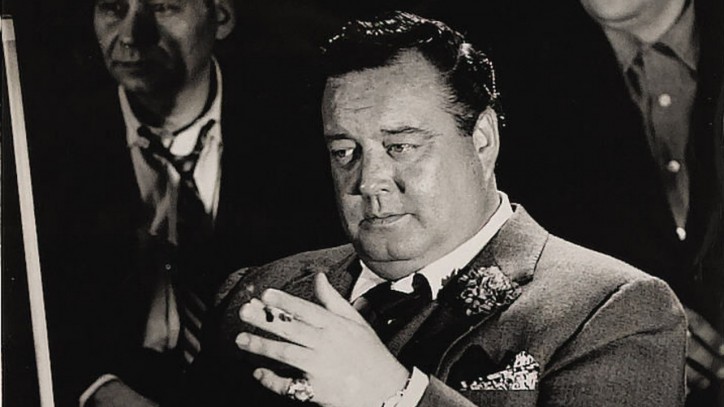
The most impressive reason The Hustler should be required viewing is the performances of the cast. Newman is his usual magnetic self: he sizzles the screen with those exceptional eyes and masculine presence, and imprints himself on the Felson character instantly. He’s brash, dashing but flawed, and hidden behind the façade of confidence is an underlying sadness; he aches to be a “winner”, but teeters towards consigning himself to remaining a “loser”. Newman delivers everything required of the script, and then some. His female co-star, Piper Laurie, lacks the raw screen energy to truly compete with Newman at the same level, but she’s solid enough and bristles with a stunning sensuality when not required to act drunk. George C Scott is terrific as Bert, the shark-like gambling pro who comes across as the pimp to Eddie’s prostitute. Scott has an intensity to his role, a hidden brutality and the kind of off-kilter vibe of an electric eel – smiles when needed, and delivers a gut-punch when required.
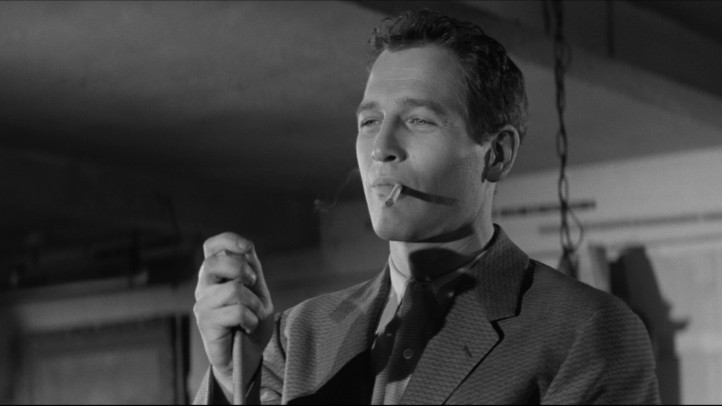
Easily the most memorable character – and by default, performance – of the entire film is not Eddie, nor is it Sarah or Burt… it’s Minnesota Fats, as played by Jackie Gleason. He’s in the film in two significant scenes, the first towards the beginning when he soundly beats Eddie in a marathon pool session, and the second in the inevitable rematch at the end, but he towers over the entire story like some messianic figure taunting Eddie throughout. Gleason, best known as a small-screen comedian by audiences today, delivers a presence that is every bit as scorching as Newman’s, and in some ways betters him. He says little, yet remains magnetic each time he’s on screen, and you can’t take your eyes off him.
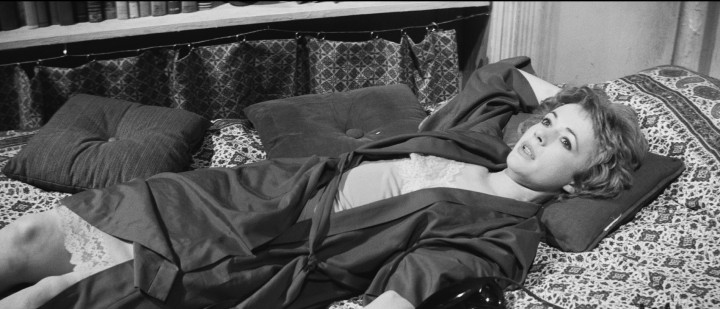
From a production standpoint, The Hustler also delivers on every aspect. The first to note is the terrific use of black and white photography. While the majority of the film is set indoors, there’s no sense that it’s all “shot on a soundstage” like many Hollywood films of the era, and you get the sense that the gritty, seedy locales actually exist. The lighting and use of juxtaposition of the editing cross-fades (by Dede Allen, who would go on to chop films like Bonnie & Clyde, Serpico, The Breakfast Club and Wonder Boys, among others) is terrific, and although shot in monochrome, you never miss the lack of colour. Striking also is the jazzy score by Kenyon Hopkins (who also scored 1957’s 12 Angry Men), a light, fluffy sound which contrasts starkly against the inherent despair of the narrative, and yet is markedly integral to the overall feel of the picture. I’m not a huge fan of jazz, but I was impressed by this.
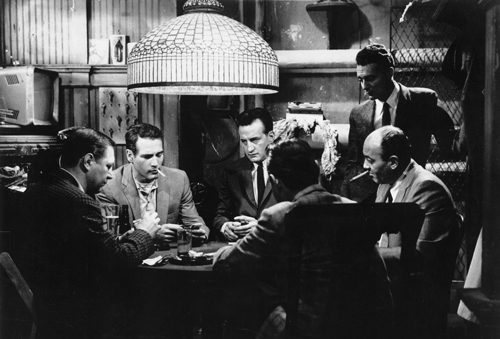
About the only negative I have to mention is the somewhat saggy mid-section of the film, when the story moves away from the pool halls and into Eddie and Sarah’s apartment. Their didactic relationship is essential to the growth of Eddie’s character by the end of the film, because it’s the basis of the conflict from which he’s trying to escape, but there’s a period of about twenty or so minutes in the middle of the movie that just sags under its own weight. Rossen’s content to slow the pace of the film down here, which does allow for character development, but it also leave us waiting [a little too long] for more of those fabulous pool hall sequences. The mid-point of the film also sees the script become somewhat melodramatic, and this nearly kills the mood established by the razor-sharp “action” sequences that open the movie. Newman and Laurie are game to delve into their characters, sure, but this is the weakest part of a very strong movie, so I guess I felt a little deflated after the moody, atmospheric opening sequences.
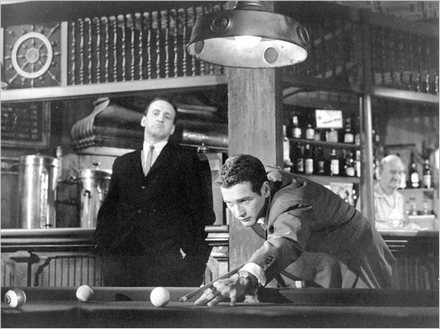
Do not underestimate The Hustler, however. It’s a raw, gritty tale of urban depression and addiction – Eddie’s addicted to pool, while Sarah’s addicted to booze, and neither seems ready to give either up in a hurry. The film’s visual aesthetic is sultry, the photography is sublime, and the performances (regardless of script flaws) are superb. Whether you accept the story on its merits is probably the only obstacle to you enjoying this movie, and I’d be hard pressed to say I’ve seen this kind of thing done any better, even if the issues on offer seem a tad preachy at times. For sheer screen power and some truly sizzling key performances, however, The Hustler is an essential film to watch. Newman is magnetic, and both Scott and Gleason are razor sharp. Absolutely recommended.


Great pick, Rodney. Most people know about The Color of Money, but so few know that Newman had played that character before. Nice review!
Funnily, I haven't seen Color Of Money, because I'm waiting for a decent copy of it on BluRay to arrive – the reviews for the current Blu disc of COM have been awful to say the least, from a technical perspective. But yes, this is a film people should check out.. Thanks Colin!!